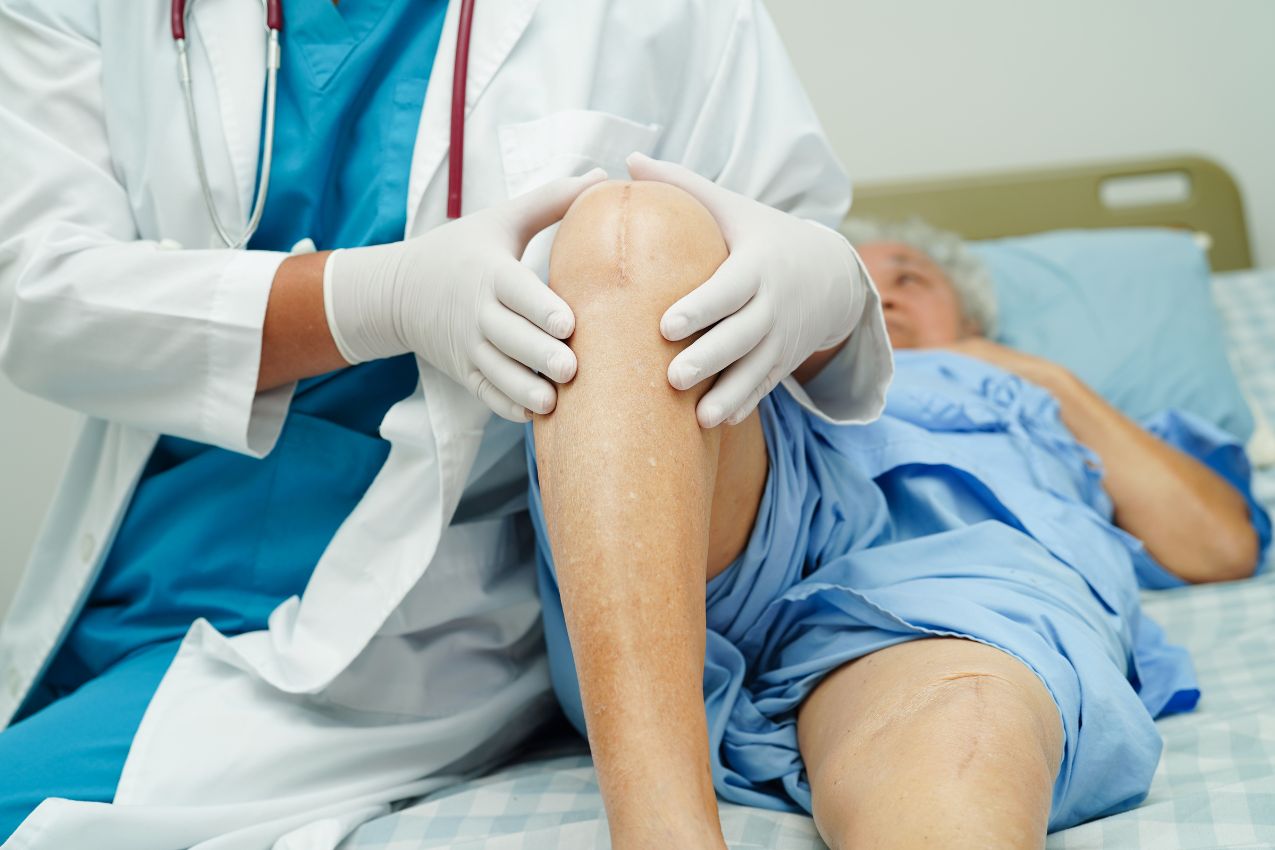Recovering from Knee Surgery: Key Tips for a Smooth Recovery

Recovering from Knee Surgery: Key Tips for a Smooth Recovery
Author
|
January 10, 2025
Knee surgery, whether it’s for a torn ligament, meniscus injury, or arthritis, can be a life-changing event. The recovery process following knee surgery is crucial for ensuring that you regain full function and strength, allowing you to return to daily activities, work, and sports. However, recovery can be a long journey, and it’s important to approach it with patience and dedication.
If you're recovering from knee surgery, here are some key tips to help you navigate the process smoothly and achieve the best possible outcome.
- Follow Your Doctor’s Instructions
After knee surgery, the most important step is to follow your surgeon's advice and prescribed recovery plan. Your surgeon will give you specific instructions regarding pain management, mobility restrictions, and physical therapy. It's essential to stick to these guidelines to avoid complications and ensure proper healing. Ignoring these instructions could lead to setbacks in your recovery, including re-injury or complications like blood clots or infections.
Your surgeon will likely advise on the use of assistive devices such as crutches or a knee brace to protect the joint while it heals. Make sure to use these devices as directed and attend all follow-up appointments to monitor your progress. - Manage Pain Effectively
Pain management is an important aspect of knee surgery recovery. While it’s normal to experience some pain and discomfort, controlling pain early on can significantly enhance the healing process and make physical therapy exercises more effective.
Your doctor will prescribe pain medications or recommend over-the-counter alternatives to help manage the pain during the initial stages of recovery. However, medications should be used as directed, and never exceed the recommended dosage.
Additionally, ice therapy can be an excellent way to reduce swelling and alleviate pain. Applying an ice pack wrapped in a towel to the knee for 20-30 minutes every few hours can help reduce inflammation and numb the area. Elevating your knee while icing can further help in reducing swelling. - Commit to Physical Therapy
Physical therapy (PT) is one of the most critical components of knee surgery recovery. Your physiotherapist will design a personalized rehab plan tailored to your surgery and progress, focusing on restoring your range of motion, strength, and flexibility.
In the early stages of recovery, the focus will be on reducing swelling and gently regaining range of motion. As you progress, strengthening exercises will become a key part of your rehabilitation, helping to build the muscles around the knee and stabilize the joint. These muscles are essential for supporting the knee and preventing future injuries.
Your physical therapist will guide you through exercises that will gradually increase in intensity as your knee heals. It’s important to stay consistent with your therapy sessions and practice at home, as this will expedite your recovery and improve the outcome of the surgery. - Stay Active Within Your Limits
While it's crucial to rest after knee surgery, complete immobility can lead to muscle weakness and stiffness, which can delay your recovery. It’s important to stay active within your physical limits, incorporating light movement to help maintain circulation and prevent complications like blood clots.
Walking with crutches, gentle leg lifts, and ankle pumps can help maintain blood flow, reduce stiffness, and prevent complications. However, avoid high-impact activities such as running or jumping until your doctor gives you the go-ahead. Overloading your knee before it's ready can lead to setbacks. - Focus on Nutrition and Hydration
Proper nutrition is essential for healing. After knee surgery, your body requires the right nutrients to promote tissue repair and combat inflammation. Focus on a balanced diet that includes high-quality proteins, healthy fats, vitamins, and minerals. Foods rich in vitamin C, such as citrus fruits, help promote collagen production, while calcium and vitamin D are essential for strong bones and healing. Omega-3 fatty acids, found in fish like salmon, have anti-inflammatory properties and can reduce swelling.
Staying hydrated is equally important for the recovery process. Dehydration can impair the healing process and contribute to fatigue. Aim to drink plenty of water throughout the day, especially after physical therapy sessions to prevent muscle soreness. - Rest and Recovery are Key
While physical therapy and activity are important, adequate rest is equally essential for your recovery. Your knee needs time to heal, so make sure to get enough sleep and avoid overexerting yourself. Resting your knee and elevating it when you can will help reduce swelling and promote healing.
It’s also important to listen to your body. If you experience significant pain, swelling, or discomfort beyond what’s expected, take a step back and consult your doctor. Pushing too hard too soon can hinder your progress. - Be Patient and Stay Positive
Recovery from knee surgery can take time—sometimes months—so it’s essential to remain patient throughout the process. Set realistic expectations with your healthcare team, and understand that the road to recovery may have its ups and downs. Celebrate small victories along the way, like regaining the ability to walk without crutches or performing a simple exercise with ease.
Maintaining a positive mindset can go a long way in improving your recovery experience. Surround yourself with supportive friends, family, and healthcare providers who can help you stay motivated and focused on your goals.
Follow Us On
Your Appointment Message Send Successfully!.